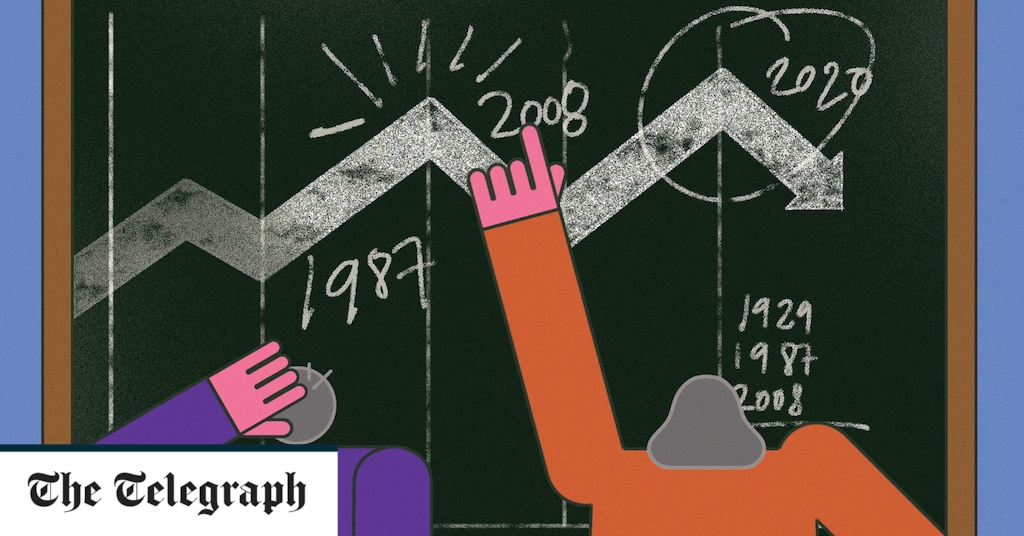Millions of self employed workers had given up on paying into a private pension before the pandemic. Now there’s growing fears the economic crisis – which has hit freelancers particularly hard – will push down savings levels further still.
Around 3.5 million freelancers out of roughly five million are not saving for their retirement, with the proportion of self-employed people saving into a pension pot falling from around half in the late Nineties to just one in six today, according to research published by the think tank the Institute for Fiscal Studies earlier this month (see below chart).
Conversely pension savings among employees has risen steadily since the Government introduced “auto enrolment” company pensions in 2012.
There are fears growing numbers of freelancers will reign in savings as incomes drop. More than three million freelancers have applied for income support during the pandemic, claiming more than £13bn in state handouts, while average incomes have already dropped by 30pc, according to tradebody IPSE.
But experts have said saving into a pension could actually help company directors cut some of their costs and allow sole traders to ring fence some of their assets if their businesses were to go under.
They gave their top pension saving tips for struggling freelancers and explained how to ensure they have enough to live off in retirement, even if it means saving less for a time.
Beware the long-term cost
James Norton of investment house and Self-invested personal pension provider Vanguard said anyone thinking about taking a break from their pension contributions should consider the longer term implications. Any initial small saving could cost thousands in the long run, he warned.
He gave the example of a 35 year-old old higher rate taxpayer, paying £300 into a Sipp each month, and hoping to retire in 30 years. They decide to take a year off paying into their Sipp in order to save £3,600, or £300 a month.
“Assuming a 5pc return on investments, annual investment costs of 0.5pc, and the tax implications, the actual cost of this deferral would be £15,000 of lost investment growth by the time they reach 65. That’s potentially an extra £750 a year in retirement income now lost, assuming they took 4pc a year from the pot ” he said.
Put your pension into trust
Tom Selby of pension and Isa firm AJ Bell said many self-employed people had the attitude that their business was their pension, but cautioned that this way of thinking left retirement plans at the mercy of the performance of a single asset.
Mr Norton advised freelancers to put their pension into trust to protect it from creditors in case their business went under.
“A pension typically offers a degree of safety not offered by other typical savings vehicles to self-employed people and small business owners,” he said.
Pause savings now and restart later
Pension rules allow you to “carry forward” your unused pension contribution allowance for up to three years, as long as you’ve remained a member of your pension scheme in that time. You can normally put up to £40,000 into a pension tax free each year. That means even if you’re struggling now, you may be able to catch up by as much as £120,000 on top of your normal pension contribution allowance in any given year in the future.
Mr Norton recommended maintaining a small contribution of as little as £1 to retain scheme membership and avoid losing out on the allowance.
He also suggested freelancers who needed an accessible contingency but still wanted to save could put some money into an Isa, instead of a pension which cannot be accessed until you reach 55. The age requirement will rise to 57 in 2028. Isas, like pensions, protect your investments from most forms of tax. But, unlike pensions, they are still subject to inheritance tax and do not provide tax relief on the money you put in.
Pensions versus Isas
Save on tax
Pension contributions can be treated as an allowable business expense and offset against a company’s corporation tax bill.
If you contribute directly into your pension from your limited company, rather than paying yourself the equivalent in salary, you will not need to pay National Insurance on the contributions.
Romi Savova of Sipp provider PensionBee said: “In real terms, a limited company could save up to 19pc in corporation tax and close to 14pc in National Insurance in the current tax year by making pension contributions through the company.
"If you’re a sole trader you won’t be eligible for these particular tax benefits, however you should be able to claim tax relief on your personal pension contributions," she said.
Basic-rate taxpayers only have to pay £80 to make a £100 pension contribution, with HM Revenue & Customs adding the difference.
Tax relief is due at the same rate you pay income tax, so higher-rate taxpayers can claim twice as much.
























Comments